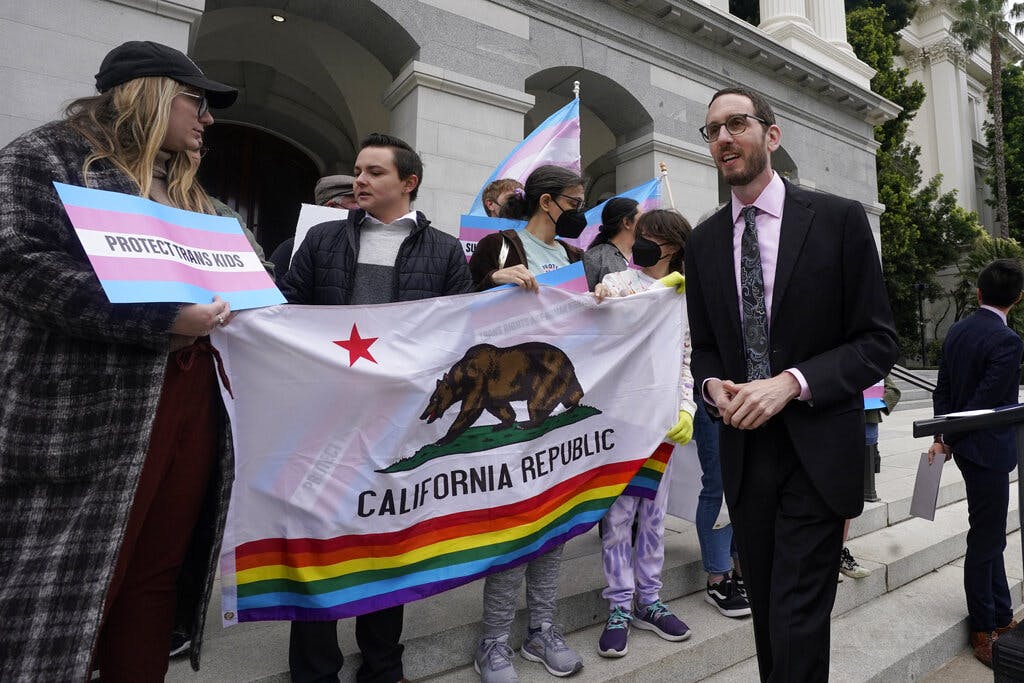Florida Poised To Ban ‘Gender-Affirming’ Sex Change Treatment for Minors
America is increasingly alone in its support for treatments such as puberty blockers and hormones for minors experiencing gender dsyphoria. Sweden, Finland, and England have all-but abandoned such ‘gender affirming’ care.

Florida is poised to join the growing number of states banning what liberals call “gender affirming” medical treatments for minors that are intended to help them transition from one gender to another with puberty blockers, hormones and surgical procedures.
The Florida Board of Medicine and the state Board of Osteopathic Medicine are scheduled to meet Friday to approve the measures, which Governor DeSantis has said he supports. A subcommittee of the bodies approved the changes to the state’s standards of treating gender dysphoria after a five-hour hearing on Friday.
State officials cited a lack of evidence that the treatments, many of which are irreversible or cause lasting changes to the patients’ bodies, are effective in treating the disorder. Exemptions are likely to be carved out for patients involved in clinical trials or those who are already undergoing such treatment. The rule change would have no impact on adults seeking to transition from one gender to another.
The move in Florida — which has enraged transgender rights activists and the liberal fringe of the Democratic party — would be the first in the nation by a state medical board. Several state legislatures have enacted laws restricting such care for minors, however, and many others are considering them.
The treatment in question involves administering puberty blockers and cross-sex hormones, as well as surgeries such as mastectomies and procedures to alter the teens’ sexual organs in order to make their bodies conform with their gender identity instead of their sex at birth.
When Arkansas became the first state in the nation to enact a law prohibiting such treatments in 2021, the law was immediately challenged by transgender patients and its implementation was temporarily blocked by a federal judge. A similar law in Alabama was also blocked, and a Texas attempt to investigate such care as “child abuse” was also put on hold by a judge.
In the Arkansas case, which is ongoing, transgender teens and their parents claim the state law is unconstitutional because it discriminates against transgender youths and intrudes on parents’ rights to make medical decisions for their children. Officials maintain they are within their rights to regulate medical practices in the state.
“This is about protecting children,” Arkansas’ Republican attorney general, Leslie Rutledge, said. “Nothing about this law prohibits someone after the age of 18 from making this decision. What we’re doing in Arkansas is protecting children from life-altering, permanent decisions.”
President Biden has made it clear that he and the party he leads support such treatment and the transgender movement in general. An executive order he issued on his first day in office instructed all federal agencies to revise existing rules and regulations as necessary to clarify that discrimination based on “sex” includes sexual orientation and gender identity.
A separate order in June ordered the department of Health and Human Services to work with states to promote expanded access to medical treatment for teens wishing to transition. “I don’t think any state or anybody should have the right to” ban such care, Mr. Biden told an interviewer last week. “As a moral question and as a legal question, I just think it’s wrong.”
A poll last spring commissioned by a group opposed to medically transitioning children suggests that there is broad consensus in the country against such procedures. Nearly two-thirds of respondents told the Marist pollsters that minors should never be subjected to hormonal or surgical interventions, with or without parental consent.
America is increasingly isolated on the world stage in its support for the treatments. Sweden and Finland have all-but abandoned “gender affirming” care, and England’s National Health Service issued new guidelines earlier this month requiring doctors to adopt a more cautious approach to treating trans-identifying teenagers.
After an extensive review of studies on the issue, the NHS said that many underage patients diagnosed with gender dysphoria are in a “transient phase.” Doctors should instead consider psychological treatment for these patients, and avoid encouraging them to take on new pronouns or other methods of “social transitioning” that could have lasting psychological impact.
The advice from European authorities stands in sharp contrast to that given by such bodies as the American Medical Association and the American Academy of Pediatrics, both of which recommend the more aggressive medical treatments for both teens and adults.
Several hospitals around the country have come under intense criticism in recent months for offering the procedures. Major medical associations have asked Attorney General Garland to investigate and prosecute people who have threatened violence against the hospitals and physicians that provide the services.
After videos surfaced of one doctor at Vanderbilt University Medical Center in Tennessee boasting about what “huge money makers” the treatments were, the school announced that it was pausing the practice and reviewing its policies. Lawmakers in the state have promised new laws against the procedures when the legislature reconvenes in January.

